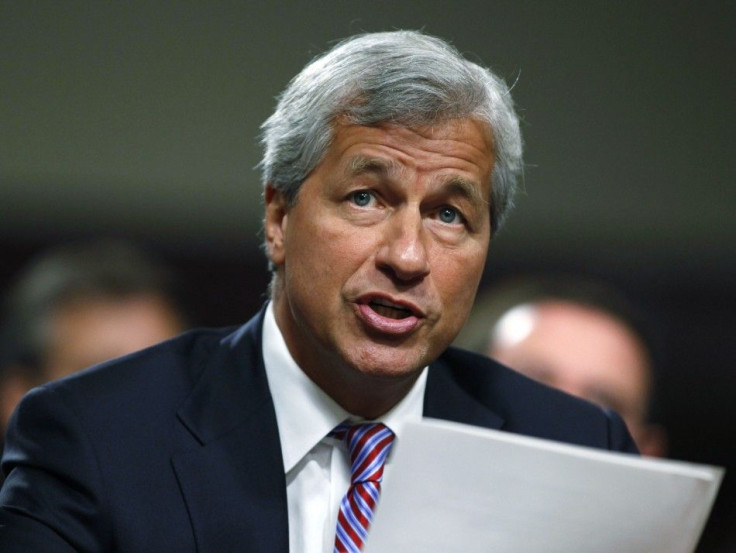JPMorgan's Dimon: Good Intentions Behind Bad Trades

(Reuters) - JPMorgan Chase & Co Chief Executive Jamie Dimon defended the intent of the portfolio behind the bank's recent multibillion-dollar trading loss, telling lawmakers it was a genuine hedge that would make the firm a lot of money if a credit crisis hit.
Dimon, appearing before the Senate Banking Committee on Wednesday, said well-intentioned traders poorly executed the hedge, and the bank's senior management failed to police the London office behind the trades.
Lawmakers have questioned whether the trades, that have yielded more than $2 billion in losses so far, were truly a hedge or a speculative bet that was hidden from shareholders and regulators.
This particular synthetic credit portfolio was intended to earn a lot of revenue if there was a crisis. I consider that a hedge, Dimon said. What it morphed into, I will not try to defend.
Dimon's highly anticipated appearance before lawmakers got off to a rocky start with multiple protesters disrupting the event.
The protests started with one man yelling out Jamie Dimon is a crook as Dimon approached the witness table. Dimon, dressed in a conservative navy suit, appeared unperturbed by the barrage of insults.
Another group of protesters then started chanting, Stop foreclosures now before they were escorted out of the cavernous hearing room.
Dimon said repeatedly that the bank's senior management failed by not detecting the London office's spike in risk, and said the bank will consider taking back pay from certain executives once the banks' board is done with their review.
I would say it's likely... there will be clawbacks, Dimon said.
Dimon revealed during a surprise conference call last month that a hedging strategy in its London office had gone awry, producing at least $2 billion, and possibly $3 billion, in trading losses.
That was after Dimon in April dismissed as a tempest in a teapot news reports that a London whale in that office had amassed an outsized position that prompted hedge funds to bet against it.
Dimon said he made that statement after attorneys and others told him they thought any problems in the London Chief Investment Office were an isolated, small issue.
When I made that statement, I was dead wrong, Dimon said
© Copyright Thomson Reuters 2024. All rights reserved.





















